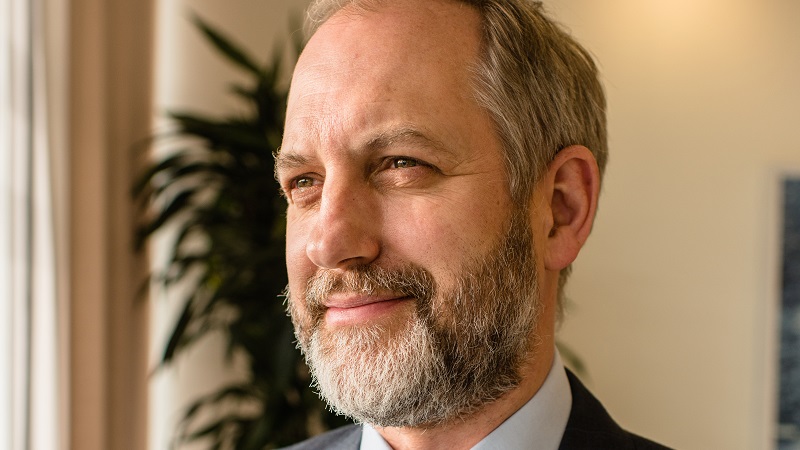The BNY Mellon Global Income fund could face more asset disruption this year as RWC launches a fund for Nick Clay that will replicate the strategy of his old fund.
The RWC Global Equity Income fund will launch in Q4 2020 with fees of 0.70% for retail investors and 0.60% for institutional investors. Institutional shares on the BNY Mellon Investment Management fund are 0.75%. Like the BNY Mellon Global Income fund, RWC fund will hold a concentrated portfolio of 40 to 60 stocks.
An RWC press release announcing the launch emphasised the fund would have a mandate similar to BNY Mellon Global Income and stated “the team and process behind the fund will be largely the same as the one that saw Clay’s assets at Newton reach £10bn”.
When Clay’s exit from BNY Mellon Investment Management was announced in March his Global Income fund held assets of £5.2bn. According to the August factsheet, assets now sat at £3.9bn at the end of the month with Morningstar data showing £1.2bn of that difference came from outflows.
“The old fund is still a big fund so there’s lots of assets to potentially tap into,” said AJ Bell head of active portfolios Ryan Hughes. “Nick was very good at getting out and meeting and knowing his clients and investors. A lot of people had invested with him for a very long time.”
See also: Nick Clay joining RWC highlights pull of boutique fund groups
Further asset disruption expected on BNY Mellon Global Income
AJ Bell switched out of BNY Mellon Global Income for Evenlode Global Income and Troy Global Income on news of Clay’s departure. It has not yet met with the replacement team on the BNY Mellon Global Income and is not in a rush to do so.
“Obviously, there was a huge amount of team turnover that was going on and we didn’t see any value in immediately going back and seeing the team,” Hughes said.
The launch of Clay’s fund only adds to concerns AJ Bell has about asset disruption in BNY Mellon Global Income, which Hughes thought would take a while to settle down. “We would probably reassess in a year, but even then, I think there’s some really strong alternative options in this space.”
At the time of his departure, Fundcalibre stated the replacement managers faced an “uphill battle” dealing with the dual challenges of outflows and the coronavirus market sell-off.
Morningstar downgraded BNY Mellon Global Income to neutral on the announcement of its new team due to reservations about the incoming managers. Analyst Jeffrey Schumacher described the track record of Ilga Haubelt, who succeeded Clay as head of equity-income, as “uninspiring” at her previous employer Deka Investment. Haubelt’s previous track record was built on a fund that had much tighter risk controls, a portfolio of around 180 stocks and no strict yield hurdle.
It said while she was supported by seasoned investors, Robert Hay’s track record was in growth opportunities and Jon Bell and Paul Flood were focused on multi-asset investing.
See also: Nick Clay: Why our defensive fund has outperformed rising markets
Nick Clay’s approach suitable to current market conditions
Hughes said AJ Bell would “certainly” be in to see Clay and his team at RWC. “A lots happened in the market in the time since his exit was announced, right in the middle of an enormous crisis and markets have bounced hugely after that.”
Hughes said he would be interested to see whether the sector allocation Clay planned to launch with would be very different to his allocations before Covid-19 hit. But he was disappointed at the 0.70% fee for retail investors stating that a lower fee could have enticed more assets from Clay’s former fund.
In the RWC press release, head of European sales Gary Tuffield highlighted “extreme” valuations on tech stocks and questioned whether the FAANGs are in bubble territory.
Tuffield added that in bonds and cash investors are being “woefully compensated for the significant rise in defaults that we are witnessing and a genuine lack of yield from deposit accounts”. His sales pitch for the RWC Global Equity Income fund stated that a disciplined process to identify quality companies with sustainable dividend income was more important as companies slash dividends.
“With many companies currently aggressively slashing dividends to fund short-term cash flows, the need for a disciplined and proven process to identify quality companies that have the ability to not only generate, but sustain a reasonable level of dividend income, is needed now more than ever.”
Willis Owen head of personal investing Adrian Lowcock said the similarities between Clay’s new fund and his fund at BNY Mellon IM meant now could be a good time to invest.
Clay’s approach was suitable to current market conditions, Lowcock said. “Whist no process was likely to go completely unscathed because of the extreme impact lockdowns had on markets the focus on high quality sustainable dividends has proven to be even more important this year.”










